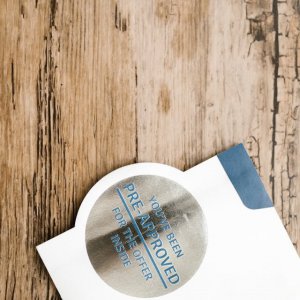Business Asset Disposal Relief in Members Voluntary Liquidation
Reducing your Tax Rate to 10%
What is Business Asset Disposal Relief (“BADR”)
Business Asset Disposal Relief (“BADR”), formerly known as Entrepreneurs Relief, will reduce a potential Capital Gains Tax (“CGT”) liability, to 10% of any gain, when disposing of business assets, if the necessary provisions are met. As and from 11 March 2020, there is a lifetime limit for each individual and the cap is £1 million.
How and When to Claim
BADR must be claimed by an individual on their self-assessment tax return on the 31 January, following the end of the tax year in which the disposal has occurred.
A spouse, or civil partner are separate individuals so each may make a claim as they are each entitled to Business Asset Disposal Relief up to the maximum sum of £1 million.
Qualifying Conditions
To be eligible for Business Asset Disposal Relief you will have to satisfy a number of conditions during the two year qualifying period. The qualifying conditions can vary depending on the type of disposal you have made, which is set out in further detail below.
If you are looking to place your Company into Members Voluntary Liquidation and extract the residual funds as a capital distribution, then in simple terms the qualifying conditions are:
- You must have owned more than 5% of the shares for two years prior to the sale of the business or it ceasing to trade,
- You must also be an employee or office holder of the Company, and,
- The Company must be a trading company, the definition of which is set out below.
If these conditions are met, then you are likely to be able to liquidate your company and pay 10% tax on the distributions that are made to you.
Different Disposal Methods
Disposing of the Whole or Part of your Business
BADR can be claimed if you either own the business directly, or alternatively are a member of a partnership during the qualifying period, however the relief is not generally available if you are disposing of the assets of a business that is continuing to trade.
Disposal of the Goodwill of your Business
If you dispose of the whole or part of your business to a close company in which you or a connected person owns 5% or more of the ordinary share capital then any gain on goodwill included in that disposal will not be eligible for BADR. A close company is one which is controlled by five or fewer participants (such as, shareholders).
The two year qualifying period ends generally on the date of disposal of the shares or securities. The exceptions are where the company ceases to be a trading company, or to be a member of a trading group, within the period of 3 years before the date of disposal. In such cases the qualifying period ends on the date the company ceased to qualify as a trading company or a member of a trading group.
Disposal of Assets Following the Cessation of Trade of your Business
You must have owned the business directly, or alternatively the assets must have been owned by a partnership in which you were a member, throughout the qualifying period of two years that ends on the date the business ceased. Additionally, the date the business ceased must be within the period of 3 years before the date of disposal of the asset.
Business asset disposal relief is also available where either:
- the company is wound up and dissolved with your shares being cancelled and a capital distribution is made in the course of the winding up
- any other capital distribution is made.
In these cases, the qualifying conditions must all be met throughout the 2 years ending with either:
- The date on which the capital distribution is made
- If earlier, the date the company ceased to be a trading company and the capital distribution is made within 3 years of the cessation.
What is a Trading Company?
The legislation provides that a company is a trading company if its activities “do not include, to a substantial extent, activities other than trading activities”. There is therefore no clear definition of what a trading company is. What HMRC will do is look at a range of indicators to see on balance whether a company is trading or not, because most companies will have some element of non-trading activity, such as receiving interest on savings.
These indicators are:
1. If the income from trading activities was substantial compared to its overall income from both trading and non-trading activities, then this would indicate that the company was a trading company.
2. If the value of the Company’s non-trading assets is not substantial when compared to its total assets, then this would point towards the Company being a trading company.
3. If the total of expenses incurred in relation to non-trading activity is not substantial when compared to all of its expenses, then again this would be another indicator that this was a trading company.
Amount of Relief
If you qualify for Business Asset Disposal Relief, you will be charged Capital Gains Tax at the rate of 10%. If an individual exceeds the lifetime allowance of £1 million then the whole of the excess will be subject to a CGT liability at the standard rate.
How the Relief is Calculated?
When a claim for BADR has been made and the necessary conditions have been satisfied, the qualifying gains and losses for the business disposal in question are aggregated to result in a net figure. If the aggregate net figure is a gain, this is the amount on which the relief is calculated.
For 2023 to 2024 this ‘net gain’, up to the lifetime limit, is then chargeable at the Business Asset Disposal Relief rate of 10% for capital gains tax purposes.
It is always best to discuss these matters with your accountant because it will be the accountant who will make the claim for you. However if you wish to discuss Business Asset Disposal Relief or any aspect of Members Voluntary Liquidations with us please ring 01326 340 579 to speak to one of our Insolvency Practitioners.
Purnells have developed a Guide to Member Voluntary Liquidation, and should hopefully assist your understanding further
Would you like us to give you a call?
Fill in the form and we'll give you a call as soon as we can to discuss your needs in a free initial consultation with a Licensed Insolvency Practitioner. Alternatively give us a call on 01326 340579 if there is an urgency to your needs.
The information provided will be used solely to contact you and any information you provide will be held in accordance with our firm's privacy policy, and not used for marketing purposes.






